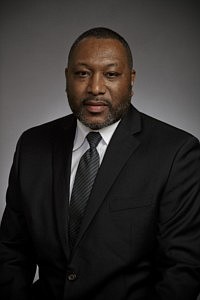9/7/2020

Imagine, for a moment, an America where mostly Black police officers patrolled White neighborhoods. Further, imagine an America where Black police officers were killing unarmed young White men because the Black officers felt their lives were being threatened. This social construct is not only unthinkable but also difficult to imagine in America. This reverse analysis of Black police officers patrolling in predominately White neighborhoods provides a clear and cogent approach to assess the depth of degradation that Black people have suffered by the hands of the police for more than 100 years. During that time, and up until now, little has changed to address the cries and screams of mistreatment.
During a conference, I once posed a question to a group of police officers who attended a session about the deadly shooting of Michael Brown, a 17-year-old Black male of Ferguson, Missouri. I asked, “If Michael Brown were a Michelle Brown, would the outcome have been the same?” Forty-seven officers attended my session: 44 were White, and three were Black. After pausing for a few seconds, they all agreed that the outcome would have been different if Michael was a Michelle. As a social scientist specializing in police-citizen interaction and juvenile justice, I viewed the officers’ responses as an affirmation to what many in the Black community believe: policing is against them.
Black people have never enjoyed the benefits of policing in America. In fact, the notion of protect and serve was explicitly intended to treat Black men as the enemy of the State. This historical note has left a confusing and bewildering feeling in the Black community that turns into anger and paranoia. Knowing that every encounter with a White police officer, no matter how mundane, can eventually be a death sentence is a tremendous burden to carry. Nonetheless, this is the inescapable reality for Black people, especially Black men, who essentially are prisoners in their own communities.
Those communities can be found in most cities across America, where the majority of police officers patrolling in Black communities are White and have had little to no interaction with Black people before joining the police force. Their understanding of Black people is limited to television and other long-standing stereotypes.
At its core, policing in America is Black and White. It is colored by race, which has been its legacy from the beginning. Therefore, any viable solution must envelop the issue of race. Meaning that as much as race is the problem, it must also be the answer. Black police officers are the key component in resolving the policing issues in the Black community.
If there is an encounter between a White officer and a Black resident today, the immediate attention is on the racial implications of the encounter. However, if the officer is Black, the issue of race is no longer a consideration. The attention and focus are on policies and procedures, as it should be. Race is not an issue in White communities, primarily because mostly White officers patrol them. Again, reverse the situation and imagine White communities being patrolled by Black officers who were indifferent and overly aggressive when interacting with young White males. There is no doubt that there would be a harsh political and social response.
We are witnessing a social upheaval unlike anything since the mid to late 1960s. The policing reform ideas that have been discussed mostly suggest a restructuring and distribution of resources. This would indicate that the deployment of patrol officers and their demographics are insignificant.
For years, policing research has supported the notion that the race of the police officer is not a determining factor in how Black people are treated. Indeed, Black police officers engage in police misconduct against Black people at a rate comparable to their White counterparts. However, an important factor to consider is they do not shoot and kill unarmed Black people. None of the police-involved shooting data of unarmed Black people in the last five years involved a Black police officer pulling the trigger.
It only makes sense that a different model of policing should be explored. However, policies and procedures cannot change the hearts and minds of people. The sanctity of Black lives has been ignored for more than 100 years, so there is no reason to believe it’s going to change now under what is essentially the same model of policing. If we can’t imagine predominately White neighborhoods being patrolled by mostly Black officers, then reimagine Black neighborhoods being patrolled by predominately Black officers. In that case, it would be unthinkable to imagine Black officers shooting and killing unarmed Black people in a comparable way that we have seen with White officers.
In the end, it is a simple proposition that changes the course of humanity. If White people can police White people, then Black people should be able to police Black people.
Terrence Allen, Ph.D., is a research scientist in the Texas Juvenile Crime Prevention Center at Prairie View A&M University.
